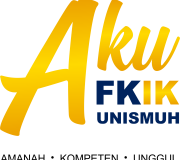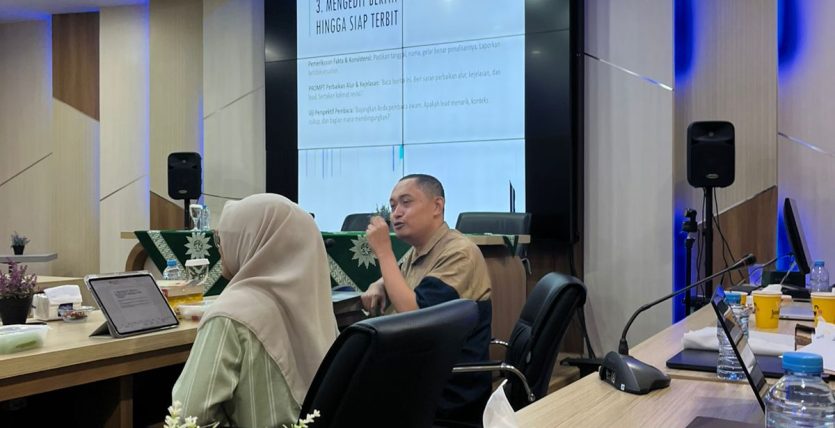The Long Road of a Sociology Lecturer to a Doctorate
The graduate hall of Universitas Negeri Makassar was filled with the aroma of coffee and hushed whispers of anticipation that morning. On a modest stage, a woman in a navy-blue hijab stood tall. Her warm smile barely concealed the firm grip of her fingers on a thick folder, as though reluctant to let it go. “This doctoral promotion hearing is officially declared passed,” announced the chair of the board, followed by a long applause that echoed through the hallway. Behind her thin-rimmed glasses, her eyes glistened, holding back tears. Her name was now officially adorned with the title of Doctor: a lecturer in Sociology Education at Universitas Muhammadiyah (Unismuh) Makassar.
“Alhamdulillah, at last this long struggle has borne fruit,” she whispered, moments before being embraced by colleagues one after another. Her voice trembled, yet carried conviction. The doctorate she received that day was not merely three letters added to her name, but a testament to years of labor, sweat, and prayer.
Among her students, she is known as a strict yet patient teacher. Her hair is always neatly tucked under her hijab, her brisk steps showing her determination to waste no time. For more than a decade, she has dedicated herself to Unismuh Makassar, teaching sociological theories in simple terms, making abstract concepts accessible. “She can explain Durkheim and Weber in everyday language. That’s why we aren’t afraid of sociology,” said Ahmad, one of her alumni.
Her doctoral journey was far from easy. She often had to postpone consultations with her supervisor because of her full-time teaching duties, not to mention family responsibilities. A close friend recalled how she corrected hundreds of exam papers while preparing her dissertation draft. “She never complained, she only said: this is both responsibility and destiny,” said Fitri, her colleague and close friend.
In her dissertation, she explored the social dynamics of urban Makassar, focusing on the transformation of communities in its alleys. The theme was close to her heart: she was born and raised in one of those narrow alleys. For her, alleys were not just passageways, but vibrant social spaces filled with solidarity and conflict. “An alley is the most tangible social laboratory,” she declared during her presentation.
Her voice was steady as she presented her findings before the examiners. She demonstrated how economic change and migration reshaped community interactions. One senior professor praised her for the courage to highlight a topic many dismissed as trivial. “This is where the strength of her research lies: she brings sociology back to its roots,” he said.
The path to recognition, however, was not smooth. She admitted there were moments she doubted whether her research would ever be completed, especially during the Covid-19 pandemic. Consultations were held remotely, and fieldwork became difficult. She confessed to nearly giving up. “But every time I felt like quitting, I remembered my students. If I didn’t finish this, how could I set an example?” she told Tempo.
Family support was crucial. Her husband, also an academic, often accompanied her late into the night. Her children grew used to seeing her stare at her laptop, exhaling long sighs. Her eldest recalled how she constantly reminded them that knowledge is not merely for degrees, but for service. “She always said that knowledge is a form of everlasting charity. We must never stop learning,” the child said.
Now, with the doctorate in hand, new responsibilities await. The Rector of Unismuh Makassar, Ambo Asse, emphasized that this achievement is not only a personal success but also a source of pride for the institution. He stated that having more doctorate holders would strengthen Unismuh’s position in higher education. “This is a valuable investment in human resources,” he remarked.
For the newly minted doctor, this title is just the beginning. She aspires to establish a center for urban community studies at Unismuh, where students can learn directly from the field. She also hopes to publish a book compiling her findings about alleys as social spaces. “An alley mirrors the city. To see Makassar’s future, look at its alleys,” she said with a smile.
As the evening drew in, she stepped out of the hall clutching a bouquet of flowers. Friends and students took turns congratulating her in the campus courtyard. The golden glow of dusk lit her face, reflecting the sparkle in her still-moist eyes. The doctorate was finally hers, but her spirit of learning seemed only to have just begun.
___________________________________________
Unismuh Gelar Pelatihan Penulisan Berita dengan AI
Universitas Muhammadiyah (Unismuh) Makassar menggelar pelatihan menulis dan mengedit berita berbasis kecerdasan buatan (AI) pada Sabtu, 5 Februari 2025. Kegiatan yang berlangsung di kampus Unismuh ini diikuti oleh dosen, tenaga kependidikan, dan mahasiswa untuk memperkenalkan pemanfaatan AI dalam mendukung jurnalisme kampus.
Acara dibuka oleh Kepala Humas Unismuh Makassar, Hadi Saputra, yang menekankan pentingnya adaptasi teknologi dalam dunia pers mahasiswa. “Penggunaan AI harus diorientasikan untuk mendukung proses kreatif jurnalis, bukan menggantikan peran penting manusia,” kata Hadi dalam sambutannya.
Hadi menjelaskan, jurnalis tetap menjadi aktor utama dalam produksi berita. Menurutnya, AI hanya dapat membantu pada aspek teknis dan administratif, sementara liputan lapangan, wawancara, serta verifikasi data harus dijalankan oleh manusia. Ia menilai keseimbangan antara teknologi dan sentuhan manusia adalah kunci menjaga kualitas jurnalistik.
Dalam sesi materi, peserta diperkenalkan pada tahapan penulisan berita, mulai dari persiapan data dan kutipan, hingga merangkai fakta menjadi naskah berita. Peserta diajak mencoba membuat transkrip wawancara menggunakan aplikasi berbasis AI sebelum memilih kutipan penting untuk dijadikan bahan berita.
“AI bisa mempercepat proses transkripsi dan membantu menyusun kerangka berita. Namun, jurnalis yang menentukan mana fakta yang relevan,” ujar Hadi. Ia menambahkan, dengan memanfaatkan AI, jurnalis kampus dapat lebih fokus pada analisis dan kedalaman liputan.
Selain kutipan langsung, Hadi juga menegaskan bahwa etika penggunaan AI menjadi perhatian utama. Menurutnya, teknologi ini harus dilihat sebagai alat bantu, bukan pengganti peran manusia. Ia mencontohkan, berita tanpa sentuhan manusia akan terasa dingin dan kurang bernyawa.
Peserta kemudian dibimbing untuk menulis berita straight news dengan gaya piramida terbalik. Mereka diminta menyusun lead yang memuat unsur 5W+1H, diikuti rincian data, kutipan, serta latar belakang. Beberapa peserta mengaku lebih mudah menyusun struktur berita setelah mendapat arahan teknis.
Rini, salah satu peserta, mengaku pelatihan ini membuka wawasan baru. “Selama ini saya menulis berita seadanya. Dengan panduan AI, saya bisa lebih cepat, tapi tetap harus hati-hati memilih fakta,” katanya. Ia berharap pelatihan semacam ini bisa rutin digelar agar mahasiswa terbiasa menulis berita berkualitas.
Pelatihan juga menyinggung teknik menulis feature bergaya naratif. Peserta diperlihatkan perbedaan antara straight news yang ringkas dan feature yang mendalam, lalu diminta membuat draf pendek berdasarkan topik kegiatan kampus.
Kegiatan ini ditutup dengan sesi praktik mengedit berita menggunakan AI. Peserta diminta menguji alur tulisan mereka dengan prompt yang tersedia, kemudian membandingkan hasil editan AI dengan perbaikan manual. Antusiasme tampak dari diskusi interaktif antara peserta dan narasumber.
Unismuh Makassar berharap pelatihan ini dapat meningkatkan kapasitas jurnalisme kampus sekaligus menumbuhkan budaya literasi digital di kalangan mahasiswa. Dengan dukungan teknologi, kampus menargetkan lahirnya lebih banyak penulis muda yang kritis, cepat, namun tetap berpegang pada etika jurnalistik.

